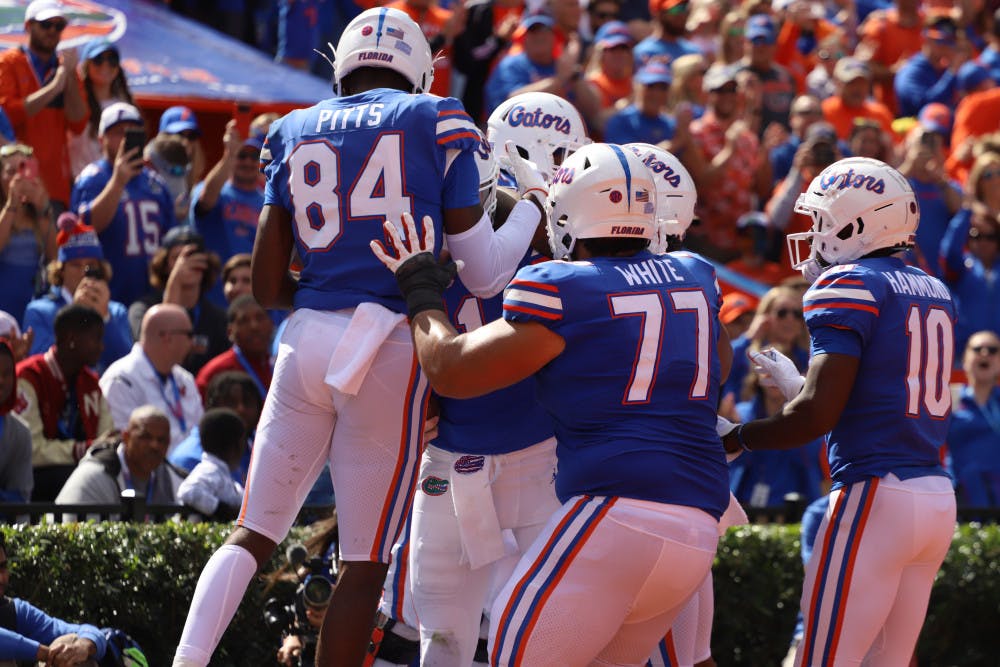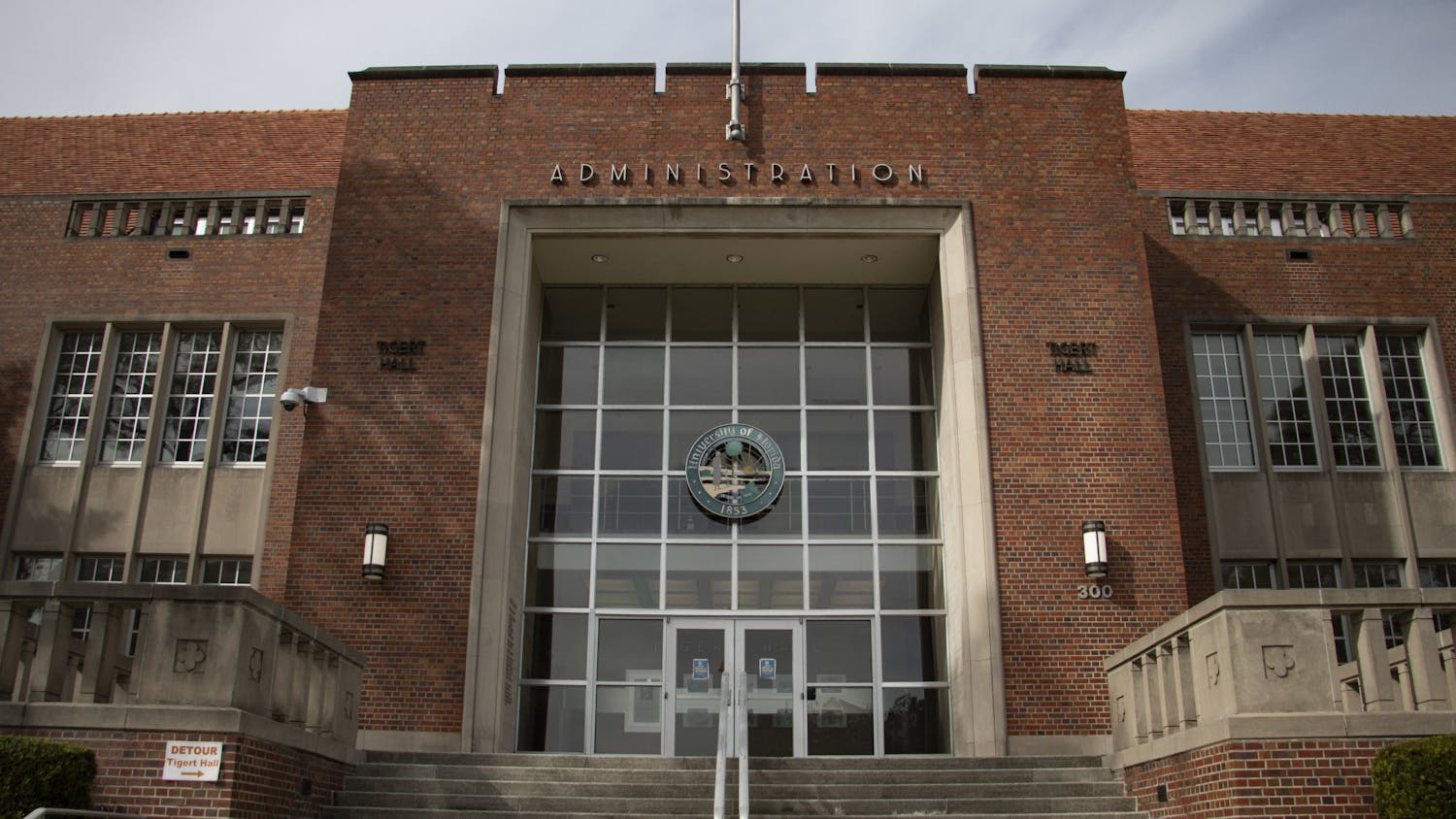UF addressed the media on Tuesday to address how it is safely returning student-athletes and starting voluntary on-campus workouts.
Since physicals started on May 26, 87 football players have been tested for COVID-19. Of the 80 tests that have been processed, none have been positive, according to the university.
Two student-athletes had previously tested positive, but one was in April and the other one was not on campus.
Athletes will not be allowed in the facilities until they have completed their physical exam, which takes about three to four days.
Workouts began on Monday for football players. According to UF’s return plan, soccer and volleyball workouts will start on June 22, while men’s and women’s basketball workouts will begin on July 6.
All workouts are appointment-only, allowing athletes to work out in smaller groups. Athletes will have daily screenings that include having their temperature checked and filling out a questionnaire. The questionnaire asks questions such as if the athletes have had any symptoms related to COVID-19 or have been in contact with anyone who has tested positive.
Players will also not have access to the locker rooms. Handwashing stations are available, and players have their own towels and water bottles. All staff present will be wearing masks.
According to UF officials, if an athlete is sick, the first step is to contact an athletic trainer, who will get in touch with a team physician. From there, the Florida Department of Health’s contact tracing guidelines will be followed.
“That’s really our whole goal in this thing,” Dave Werner, UF’s associate athletic director for sports health, said. “If there are positives, we want to mitigate the fact of it spreading.”
As part of UF’s attempts to minimize risk as much as possible, the football weight room has been moved from Ben Hill Griffin Stadium to the indoor practice facility next to McKethan Stadium. This gives the student-athletes more space to properly socially distance. The doors on the indoor practice facility will be open to further mitigate risk.
“With dealing with our infectious disease physicians, the likelihood of transmission of the virus is much less outside,” Werner said. “With setting our weight room up in (the indoor practice facility), we’re able to open those doors, the garage doors, and really come up with an outdoor area to train. The risk really decreases with that.”
Follow Brendan on Twitter @Bfarrell727 and contact him at bfarrell@alligator.org.






